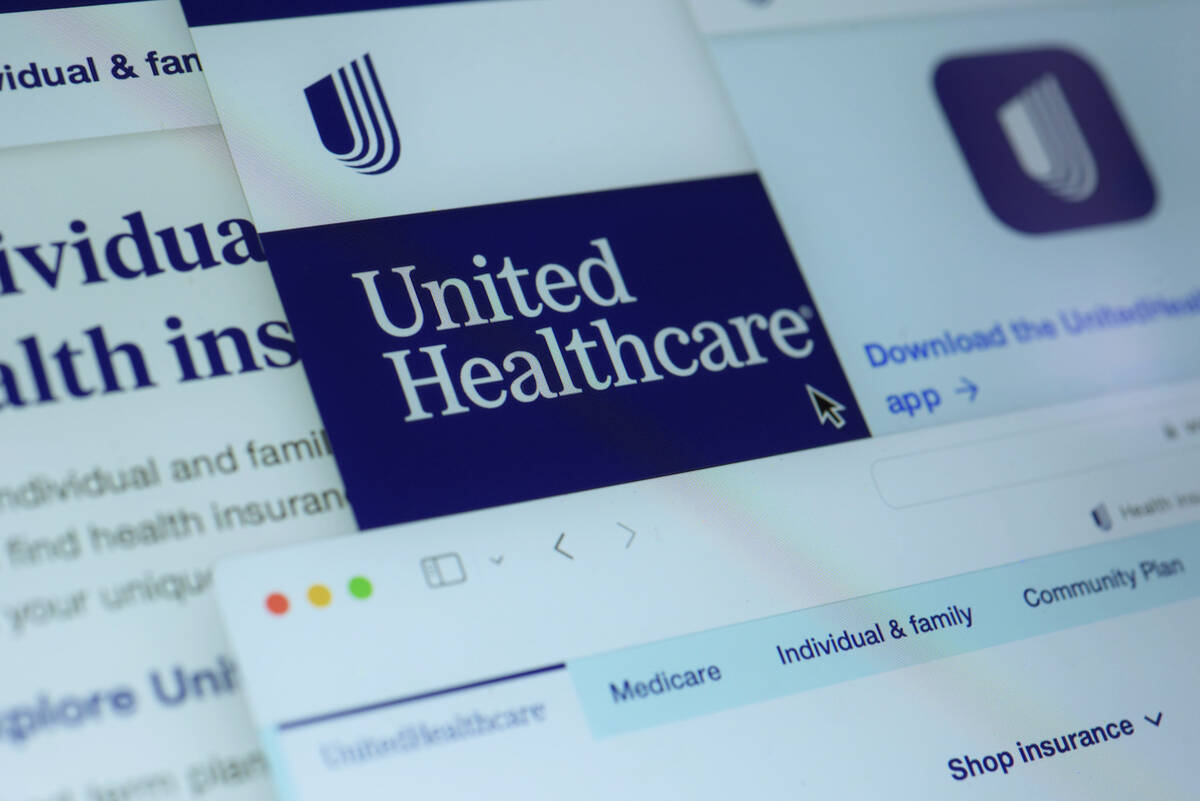Nevada impact from health care cyberattack unclear
Health care providers across the country are reeling from a cyberattack on a massive U.S. health care technology company that has threatened the security of patients’ information and is delaying some prescriptions and paychecks for medical workers.
The hack could also disrupt hospital discharges, a major hospital association said.
Change Healthcare announced Thursday that a ransomware group that had claimed responsibility for the attack was at fault. Change Healthcare also said it is assessing the impact of the attack, which it first acknowledged on Feb. 21 and has affected billing and care-authorization portals across the country.
“Patient care is our top priority and we have multiple workarounds to ensure people have access to the medications and the care they need,” Change Healthcare said in a statement.
Owned by UnitedHealth Group, Change Healthcare manages health care technology pipelines, processing 14 billion transactions a year.
In a statement posted online Friday, the company said, “Based on our ongoing investigation, there’s no indication that Optum, UnitedHealthcare and UnitedHealth Group systems have been affected by this issue.”
Change confirmed Thursday that the ransomware group ALPHV, or Blackcat, made the breach. The company didn’t respond to a question about whether it paid or negotiated a ransom.
The potential impact on patients and providers in Nevada was not immediately clear.
One of the most immediate impacts is that people are seeing delays in getting prescriptions, American Hospital Association spokesperson Ben Teicher said.
A Change representative said Friday that over 90 percent of the nation’s pharmacies “have modified electronic claim processing to mitigate impacts from the Change Healthcare cyber security issue,” while the rest have “offline processing workarounds.”
Optum and UnitedHealthcare are seeing “minimal reports, including less than 100 out of more than 65 million (pharmacy benefit management) members not being able to get their prescriptions,” the representative said. “Those patients have been immediately escalated and we have no reports of continuity of care issues.”
In an email to The Associated Press, the American Hospital Association said the severity of the situation may still be unfolding. Hospitals are having issues with processing claims, billing patients and checking insurance coverage for care, the AHA said, but the attack also could affect the ability to pay workers and buy medicine and supplies.
“The impact to hospitals is just now really starting to crystallize and as a result has been underreported,” Teicher said. “As a result we can’t really speak to the longer term aftermath, but it can result in hospitals not being able to make payroll or patients still waiting for services to be approved.”
Health systems told the Healthcare Association of New York State that they’ve had trouble with various things, including “an inability to verify patient eligibility and coverage … communicate pharmacy prescriptions, file claims … and receive normal cash flow to support operations, among other issues,” association president Bea Grause said.
Several major health care providers that serve multiple states did not respond to requests for comment.
Cybersecurity experts say ransomware attacks have increased substantially in recent years, especially in the health care sector. This one comes on the heels of an attack last month on a children’s hospital in Chicago, which had to take phone, email and medical records systems offline.
An FBI spokesperson in Tennessee said he could not confirm or deny whether the FBI is investigating. The FBI also said it’s “aware of this incident” but didn’t have anything else to provide because the incident “is ongoing.”
“As far as we can tell, the attack is being contained,” said Allan Liska, a threat intelligence analyst at Recorded Future. “We don’t think it’s going to get worse. But when you have a critical system like this that’s down for an extended period … the longer it’s down and the longer that recovery takes, the more impact it’s going to have on patient care.”
AP correspondent Adrian Sainz in Memphis, Lindsey Whitehurst in Washington and Review-Journal digital content planning producer Paul Pearson contributed to this report.

















